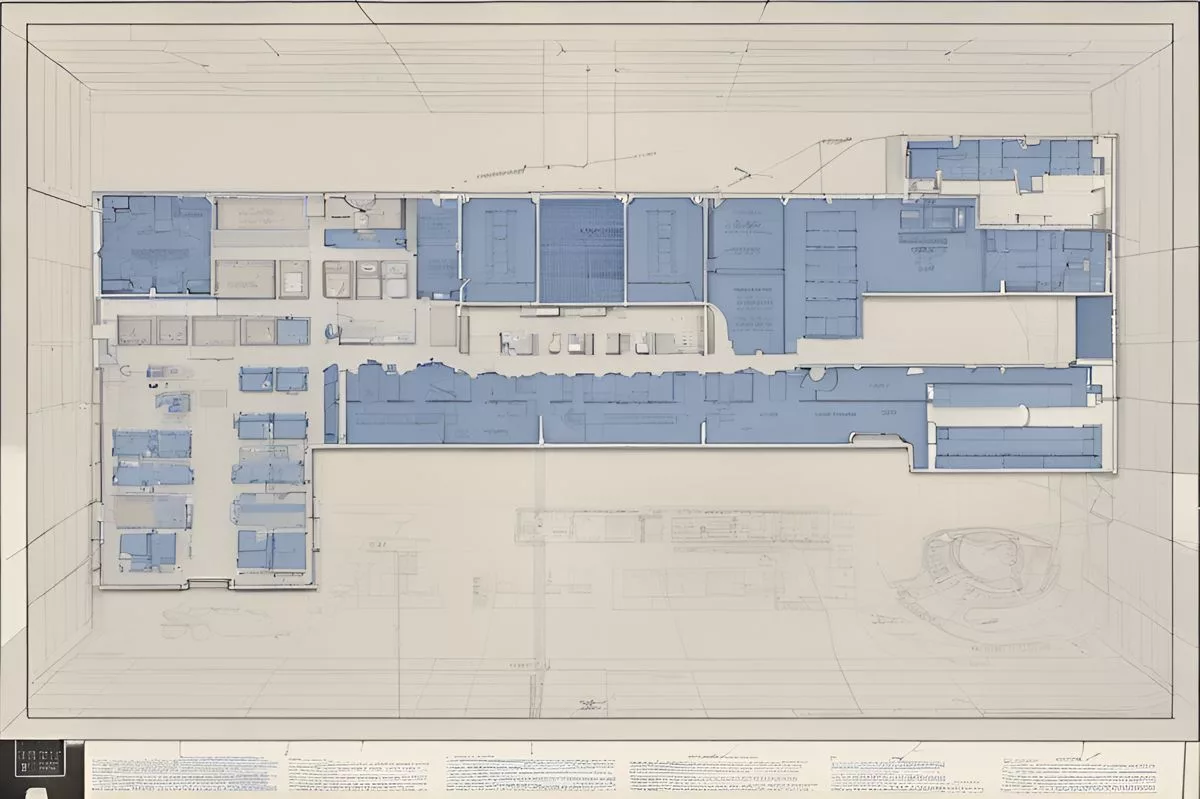The Natjoints Coordination Centre is a new addition to South Africa’s largest police training institution, designed for information coordination, incident reporting, and quick responses. The NCC boasts state-of-the-art technology and will host representatives from 39 government departments and private sector stakeholders within the National Joint Operational Centre. It represents a significant step towards improved coordination and a leap towards bolstered security for all South Africans.
What is the Natjoints Coordination Centre?
The Natjoints Coordination Centre (NCC) is a new addition to South Africa’s largest police training institution, established for information coordination, timely incident reporting, and quick responses to a variety of situations under the NATJOINTS’ purview. It boasts state-of-the-art data network and communication systems, as well as superior audio-visual capabilities, and will host representatives from 39 government departments, agencies, state-owned enterprises, and private sector stakeholders within the National Joint Operational Centre (NATJOC). The NCC represents not just a step towards improved coordination, but also a leap towards bolstered security for all South Africans.
South Africa’s largest police training institution has recently welcomed a vital new addition, courtesy of the South African Police Service (SAPS). Minister Bheki Cele led the inauguration of the Natjoints Coordination Centre (NCC), a project born out of essential insights gained in the battle against the COVID-19 pandemic.
Embracing Change Amidst Challenges
Nestled within the nation’s largest training college, the NCC stands as a symbol of transformation in challenging times. It embodies an advanced ‘Whole of Government’ strategy to bolster the country’s security as it braces for the forthcoming May 29th National Elections.
The inception of this extensive and crucial Hub of the National Joint Operational Intelligence Structures didn’t happen overnight; it has been on the drawing board for a considerable duration. The NCC is ready to function as the core for information coordination, timely incident reporting, and quick responses to a variety of situations under the NATJOINTS’ purview.
Transformation and Refurbishment
The establishment that houses the NCC underwent a rigorous four-month renovation and redesign to adapt to its new role. The design of this newly minted edifice not only encompasses the National Joint Operational Centre (NATJOC), but it also invites one or more Mission Area Joint Operational Centres (MAJOC).
Minister Modise proclaims the NCC as the pulsating core of South Africa’s intelligence structures. It comes fully loaded with the necessary equipment and advanced technology to ensure fluid and agile collaboration among all agencies when faced with any national threat.
Technological Advancements and Future Roles
The NCC is not just a hub of coordination; it’s a technological wonder fitted with state-of-the-art data network and communication systems, as well as superior audio-visual capabilities. It stands as a testament to uncompromised situational awareness essential for strategic decision-making and command direction of intelligence structures.
Moreover, the NCC will act as the planning nexus for all significant national events, such as the upcoming elections. It holds a unique place within the JCPS cluster departments, boasting technology not present in any other governmental facility in the country.
Once it achieves full operational capacity, the NCC will host representatives from 39 government departments, agencies, state-owned enterprises, and private sector stakeholders within the NATJOC. Its completion ushers in a new age of effective command and control oversight at a DG level, which will prove particularly advantageous for the 2024 National Elections and the Presidential Inauguration.
An Everlasting Operational Centre
The NCC isn’t a transient entity; even after the elections, it will remain active 24/7, 365 days a year. It will function as the primary centre for NATJOINTS inter-departmental and inter-governmental activities and operations.
Indeed, the NCC serves as a purpose-built facility that will enhance the functioning of the NATJOINTS and the security Cluster as a whole. This is good news for South Africans who can gain confidence in the steadfast commitment of the NATJOINTS to serve and protect the law-abiding citizens and everyone living within the country’s boundaries.
Minister Cele assures South Africans that every effort is being made to protect every voter’s rights and to counter any criminal acts or actions that could infringe upon the rule of law or threaten lives or property. Thus, the creation of the NCC represents not just a step towards improved coordination, but also a leap towards bolstered security for all South Africans.
What is the purpose of the Natjoints Coordination Centre?
The Natjoints Coordination Centre (NCC) serves as a hub for information coordination, timely incident reporting, and quick responses to a variety of situations under the NATJOINTS’ purview. It is a purpose-built facility designed to enhance the functioning of the NATJOINTS and the security Cluster as a whole.
Who will be represented within the National Joint Operational Centre?
The NCC will host representatives from 39 government departments, agencies, state-owned enterprises, and private sector stakeholders within the National Joint Operational Centre (NATJOC).
What kind of technology does the NCC have?
The NCC is equipped with state-of-the-art data network and communication systems, as well as superior audio-visual capabilities. It stands as a testament to uncompromised situational awareness essential for strategic decision-making and command direction of intelligence structures.
What events will the NCC be involved in?
The NCC will act as the planning nexus for all significant national events, such as the upcoming elections. It holds a unique place within the JCPS cluster departments, boasting technology not present in any other governmental facility in the country.
Will the NCC be operational only during election times?
No, the NCC will remain active 24/7, 365 days a year even after the elections. It will function as the primary centre for NATJOINTS inter-departmental and inter-governmental activities and operations.
What is the significance of the Natjoints Coordination Centre?
The establishment of the NCC represents not just a step towards improved coordination, but also a leap towards bolstered security for all South Africans. It serves as a symbol of transformation in challenging times and embodies an advanced ‘Whole of Government’ strategy to bolster the country’s security.












